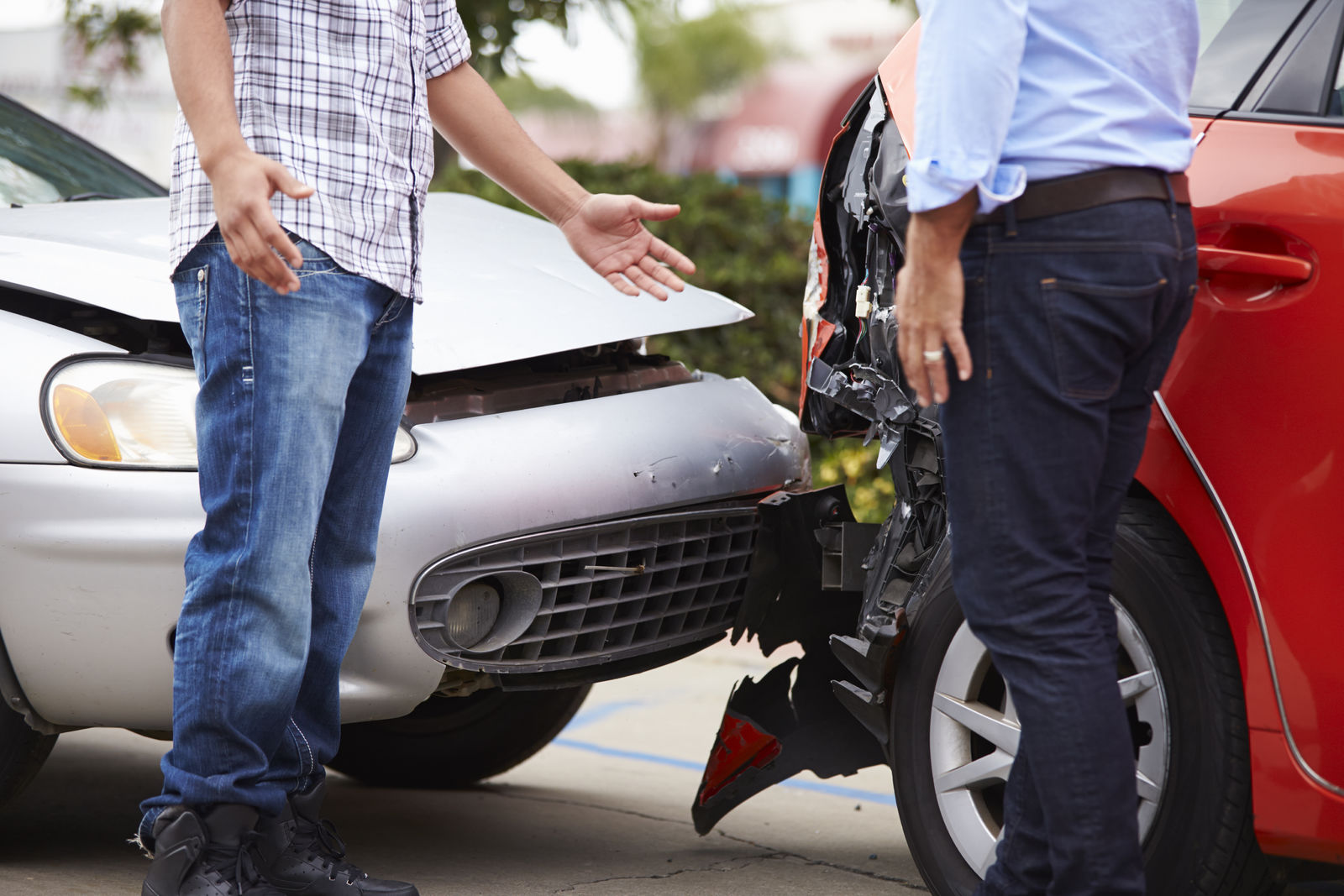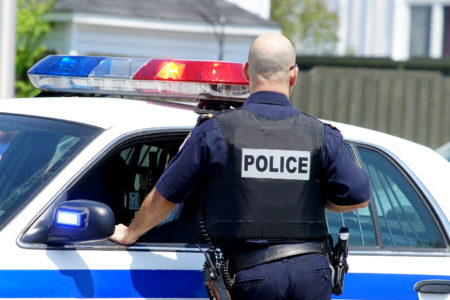Who is at fault in a car accident?

Free Car Insurance Comparison
Compare Quotes From Top Companies and Save
Secured with SHA-256 Encryption
Brad Larson
Licensed Insurance Agent
Brad Larson has been in the insurance industry for over 16 years. He specializes in helping clients navigate the claims process, with a particular emphasis on coverage analysis. He received his bachelor’s degree from the University of Utah in Political Science. He also holds an Associate in Claims (AIC) and Associate in General Insurance (AINS) designations, as well as a Utah Property and Casual...
Licensed Insurance Agent
UPDATED: Jan 5, 2024
It’s all about you. We want to help you make the right coverage choices.
Advertiser Disclosure: We strive to help you make confident car insurance decisions. Comparison shopping should be easy. We are not affiliated with any one car insurance provider and cannot guarantee quotes from any single provider. Our partnerships don’t influence our content. Our opinions are our own. To compare quotes from many different companies please enter your ZIP code on this page to use the free quote tool. The more quotes you compare, the more chances to save.
Editorial Guidelines: We are a free online resource for anyone interested in learning more about car insurance. Our goal is to be an objective, third-party resource for everything car insurance-related. We update our site regularly, and all content is reviewed by car insurance experts.
UPDATED: Jan 5, 2024
It’s all about you. We want to help you make the right coverage choices.
Advertiser Disclosure: We strive to help you make confident car insurance decisions. Comparison shopping should be easy. We are not affiliated with any one car insurance provider and cannot guarantee quotes from any single provider. Our partnerships don’t influence our content. Our opinions are our own. To compare quotes from many different companies please enter your ZIP code on this page to use the free quote tool. The more quotes you compare, the more chances to save.
On This Page
- Some states require drivers to carry personal injury protection to provide medical coverage
- Insurance companies will determine the driver’s percentage level of involvement based on the state’s laws around contributory or comparative negligence
- If an accident was not your fault, it should not have any effect on your insurance premiums
Car accidents are never fun, and a serious crash can change someone’s life forever. In terms of car insurance, if a driver is not at fault in an accident, his insurance premiums generally stay the same.
Drivers who are at fault, however, will be paying a lot more for insurance in the future.
It is important for drivers to understand what “at-fault” really means so they are prepared if they have the misfortune to be involved in an accident in the future.
Enter your zip code above for FREE car insurance quotes today!
Defining At Fault

This person’s insurance company will compensate others involved in the accident for injuries and damages.
Being at-fault in a car accident may also result in traffic school or points on a driver’s record.
Depending upon the circumstances, especially if alcohol was involved, a person may also need to carry an SR-22 certificate and high-risk insurance for three years afterward.
FREE Car Insurance Comparison
Compare quotes from the top car insurance companies and save!
Secured with SHA-256 Encryption
Who is really at fault?
The parties involved in an accident may disagree about who is at fault, and it may not be clear depending on the type of accident and the details leading up to it.
Insurance companies may also disagree, and some states require fault to be distributed proportionately between the parties involved in the accident.
Each state has its own comparative fault laws, with three variations: pure, 51 percent or 50 percent comparative fault.
For example, with 50 percent proportional comparative fault, when an injured person is more than 50 percent at fault in a car accident he is not entitled to any compensation for damages.
A pure comparative fault example would be if an injured driver were partially responsible for causing the accident that injured them.
What is no-fault insurance?

There are some drawbacks –no-fault insurance does not compensate accident victims for any pain or suffering, and the policy has limits on other financial damages.
In practice, states that have no-fault insurance have found premiums are about 25 percent higher than states that require traditional liability coverage.
No money is saved on litigation either since drivers just sue the insurance companies instead of suing the other parties in the accident.
Compare quotes from the top car insurance companies and save! Secured with SHA-256 Encryption
What is the typical insurance coverage?
Each state requires drivers to carry a minimum level of insurance coverage. It usually consists of liability insurance, which does not cover the policyholder in an accident.
Comprehensive and collision coverage are two other common forms of auto insurance and these types of coverage protect the policyholder and pay for damage to his vehicle.
Some states require drivers to carry personal injury protection to provide medical coverage and uninsured/underinsured motorist to pay for any damage or injuries caused by drivers without insurance.
FREE Car Insurance Comparison
Compare quotes from the top car insurance companies and save!
Secured with SHA-256 Encryption
What to Do First in an Accident Situation

If the vehicles have blocked traffic but can safely be removed out of the road, it would be wise to do so.
It is important to call the police as well since they can act as an unbiased party to report on the accident details and file a police report.
Do not discuss the accident with anyone except the police, and do not accept any fault, even if you think it may be your fault.
Gathering Evidence
Evidence is key in determining who is at fault in an auto accident.
Take notes about how the accident happened, the condition of your car and the other car or cars involved, and any injuries to any of the involved people.
Take pictures with a cell phone of the other car, your car, the street or intersection of the accident, skid marks and any other information that seems relevant.
Calling the Cops

It can be hard to keep a cool head in such a stressful situation, and the police can assist both parties and make sure the accident situation is handled appropriately.
A police report is important evidence for insurance companies, to document what happened in the accident.
For minor accidents, police may not have the resources available to respond and take a report.
FREE Car Insurance Comparison
Compare quotes from the top car insurance companies and save!
Secured with SHA-256 Encryption
Insurance Company Opinion
Auto insurance companies stay profitable by charging appropriate premiums to compensate for risk and potential payouts for accidents.
They invest a lot of effort in only paying out what is absolutely necessary, especially since insurance fraud costs them billions of dollars each year.
If a driver is not at fault, it helps the insurer if he provides as much information as possible about the accident. This is where the notes, witness interviews and pictures come in handy.
How does a car accident affect your insurance?

However, if the insurance company determines you were at fault, your rates will most likely increase substantially.
Additionally, if you were convicted of a DUI or other type of intoxication, the insurance company will cancel your policy.
Every insurance company uses its own methods for calculating premiums, and insurers that specialize in writing high-risk policies may actually be able to offer surprisingly affordable insurance coverage.
Enter your zip code below to get FREE car insurance quotes today!
FREE Car Insurance Comparison
Compare quotes from the top car insurance companies and save!
Secured with SHA-256 Encryption
Brad Larson
Licensed Insurance Agent
Brad Larson has been in the insurance industry for over 16 years. He specializes in helping clients navigate the claims process, with a particular emphasis on coverage analysis. He received his bachelor’s degree from the University of Utah in Political Science. He also holds an Associate in Claims (AIC) and Associate in General Insurance (AINS) designations, as well as a Utah Property and Casual...
Licensed Insurance Agent
Editorial Guidelines: We are a free online resource for anyone interested in learning more about car insurance. Our goal is to be an objective, third-party resource for everything car insurance-related. We update our site regularly, and all content is reviewed by car insurance experts.